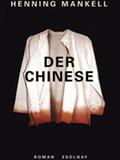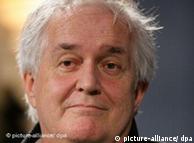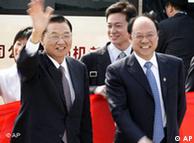Investors Seek Asian Options to Costly China

Justin Mott for The New York Times
When it comes to multinational manufacturing, Vietnam is fast becoming the new China. The electronics maker Samsung is building a factory in Yenphong Industrial Park, in Yenphong, Vietnam.
Published: June 18, 2008
HANOI — Canon is no longer building or expanding factories in China, but the company is doubling its work force at a printer factory outside Hanoi to 8,000.
Nearby, Nissan is expanding a vehicle engineering center. Hanesbrands, the underwear company based in Winston-Salem, N.C., is setting up two new factories here, as is the Texhong Textile Group from Shanghai.
China remains the most popular destination for foreign industrial investment in the world, attracting almost $83 billion last year. But a growing number of multinational corporations are pursuing a strategy that companies and analysts call “China plus one,” establishing or expanding Asian bases outside China, particularly in Vietnam.
A long list of concerns about China is feeding the trend: inflation, shortages of workers and energy, a strengthening currency, changing government policies, even the possibility of widespread civil unrest someday. But most important, wages in China are rising close to 25 percent a year in many industries, in dollar terms, and China is no longer such a bargain.
Even as companies seek other places to make their goods, they are stalked by overheated economies: in Vietnam, for example, inflation was 25.2 percent last month.
More than corporate profit margins are at stake. When the cost of making goods in Asia rises, American consumers inevitably feel pain. The Labor Department said Thursday that import prices were 4.6 percent higher in May than a year earlier for goods from China and 6.4 percent higher for goods from southeast Asia.
Companies are using the China-plus-one strategy to mitigate the risks of overdependence on factories in one country.
Multinational corporations are “thinking about all the world and keeping a balance” between China and other countries, said Edward Kang, the chief executive of Ever-Glory International, a sportswear manufacturer in Nanjing, China. Ever-Glory, which sells to Wal-Mart and Kohl’s, is building a factory in Vietnam.
Companies remaining in China are desperately seeking to control costs.
“We will maintain our capacity in China, but we will make it more automatic and reduce the number of employees,” said Laurence Shu, the chief financial officer of Shanghai-based Texhong, one of the world’s largest makers of cotton and spandex fabric.
To limit labor costs, Hanesbrands is building a largely automated factory in Nanjing. But the company is also building a factory in Vietnam, in addition to a factory it bought here, and two more in Thailand.
Gerald Evans, the president for global supply chain at Hanesbrands, said that compared with China, “we found more ready availability of both land and labor in both Vietnam and Thailand.” Hanesbrands will be shifting some manufacturing from Mexico and Central America to Asia.
In China, where rural villages are running low on able-bodied young workers to send to factories, wages are rising more than 10 percent a year for many assembly-line workers. And pay is rising even faster for skilled workers, like machinery repair technicians.
In coastal provinces with ready access to ports, even unskilled workers now earn $120 a month for a 40-hour workweek, and often considerably more; wages in inland provinces, where transport is costlier, are somewhat lower but also rising fast. While Chinese wages are still less than $1 an hour, factory workers in Vietnam earn as little as $50 a month for a 48-hour workweek, including Saturdays.
Texhong estimates that average labor costs for each textile worker in China will rise 16 percent this year, including increases in benefits costs — on top of a 12 percent increase last year. New regulations are making it harder for companies to avoid paying for benefits, like pensions, further increasing labor costs.
When those increases are combined with a currency rising against the dollar at an annual pace of up to 10 percent, labor costs in China are now climbing at 25 percent a year or more.
Inflation in China — more than 8 percent in February, March and April and 7.7 percent in May — raises the prospect that labor costs will soar even faster soon. That could push up prices for a wide range of goods exported to the United States.
China is also phasing out its practice of charging lower corporate tax rates for foreign-owned companies. By contrast, Vietnam still offers foreign investors a corporate tax rate of zero for the first four years, and half the usual rate of 10 percent for the next four years.
Foreign direct investment in China has grown by a third over the last three years. By contrast, foreign direct investment has more than doubled in this period in the Philippines, quintupled in India and soared more than eightfold in Vietnam.
Faster rates of increase in other Asian countries had partly reflected lower starting points. But investment is still growing quickly, and now it’s growing from high levels. For example, foreign investment in Vietnam reached nearly $18 billion last year.
A popular saying among Western investors is that Vietnam is the next China. Cambodia, with even lower wages attracting garment manufacturers, is called the next Vietnam.
But Vietnam has only 1/16th of China’s population and Cambodia has one-fifth of Vietnam’s. As foreign investors leap into each new country, they drive up the cost of workers and goods, a dynamic that makes it less likely that a shift in investment patterns will hold down inflation in American imports.
A recent survey by Grant Thornton, a global accounting and consulting firm, found that companies were more worried about attracting and retaining critical staff in Vietnam than anywhere else in the world. (China was a close second.)
“We trained them, we educated them and then they quit,” said Akira Akashi, the chairman of Nissan Techno, a division of Nissan that designs vehicles.
The company plans to expand to 1,400 engineers in Vietnam by 2010. Beginning engineers here still earn just $200 a month, less than half the salary in China and less than a tenth of American and Japanese salaries.
Even blue-collar labor is becoming harder to find. In addition to the size of the labor force, infrastructure is also likely to be a brake on how fast China plus one can expand. Most countries in Asia, including Vietnam, have not improved transportation links as quickly as China. Lengthy traffic jams slow down shipments and drive up costs.
Vietnam’s biggest selling point for many companies is its political stability. Like China, it has a nominally Communist one-party system that crushes dissent, keeps the military under tight control and changes government policies and leaders slowly.
“Communism means more stability,” Mr. Shu, the chief financial officer of Texhong, said, voicing a common view among Asian executives who make investment decisions. At least a few American executives agree, although they never say so on the record.
Democracies like those in Thailand and the Philippines have proved more vulnerable to military coups and instability. A military coup in Thailand in September 2006 was briefly followed by an attempt, never completed, to impose nationalistic legislation penalizing foreign companies.
“That sent the wrong signal that we would not welcome foreign investment — this has ruined the confidence of investors locally and internationally,” the finance minister Surapong Suebwonglee said in an interview in Bangkok.
Yet, like China, Vietnam does not offer complete tranquillity either. For instance, workers are becoming more vocal and staging more strikes, despite a government ban on independent unions.
Nearly 20,000 workers walked out this spring at a Nike shoe factory run by a Taiwanese contractor. The workers went back to work only when given a 10 percent raise, to $55 a month, and a larger meal subsidy.
That restive pattern is also evident in India, which is expected to have more people than China within two decades.
But many companies are leery of poor roads and congested ports in India, as well as long sailing times for components that must be shipped from existing factories in China.
And even in India, demand for workers with industrial skills or the ability to speak English outstrips the supply — and their wages have been rising by 10 to 20 percent a year.
That has led to worries about India’s long-term competitiveness, even for those investing heavily there, like Ford Motor, which is planning to spend $500 million on factory expansion.
“I keep saying to our people, ‘How long will it be until we’re priced out of the market?’ ” said John Parker, Ford’s executive vice president for Asia, Pacific and Africa. “The impact of that some day is you’re no longer low-cost.”
Keith Bradsher reported in April from Vietnam and later from Bangkok, Beijing, Hong Kong, Manila and Guangzhou, China.
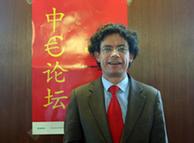

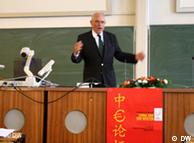

 ‧
‧




 英国《每日电讯报》:中国--世界新统治者(中/英)
英国《每日电讯报》:中国--世界新统治者(中/英) 


